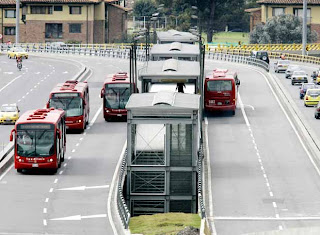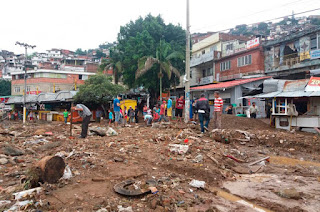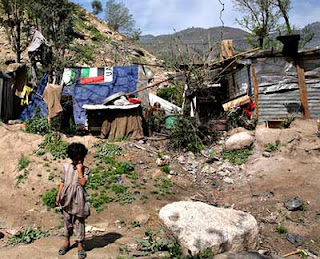You cannot make a revolution to have democracy. You must have democracy to make revolution.
_____________
Currently in Latin America, a large part of economic decisions by left gouvernments are to declare the socialist revolution, in whose name are formed the axis of all their follies; the expropiation of firms, factories, lands and the burring -because law is not amiable with private initiative-, of property rigths are the guide of new social relations of production and the structure of those economic models that denied capitalism as the way to create wealth and welfare to people. All the current economic policies of Venezuela, Ecuador and Bolivia usually are confused like social revolutions, but I think Marat, Robespierre and, even, the american revolutionaries of independence could feel ashamed for sharing so honored condition with Chávez, Evo and Rafael Correa.
If we examine History, we could find the real meaning of revolutions. Usually, revolutions are a chain in which a political change involves an economic change, and even a substantial transformation in economic model implies new governance structure. For example, the birth of industrial capitalism in the early 18th century marked a major change in the prevailing political systems, by making them durable and consistent with a system that favors capital among other factors of production and enabled a generation of wealth as never before, i. e., industrial and french revolution . But surely, the objective of a revolution involves the desire of its promoters to ignore the current order and to establish the new one, usually through a profound institutional change. However, revolutions have not ensured succes, why?, I think it it's easy to explain if we consider the very old discussion about "growth-vs-distribution", where there're so many ways each gouvernmenet could take accordind to its criterion , often dangerously diminished by an ideological bias and rarely technical and, why not, scientific concepts. Within the idea of Stiglitz, policies that proclaims distribution of wealth are not efficient, thus, do you think a poor country like Venezuela could become richer if distributes its ridiculously small wealth and does not grow (Venezuelian economy could grow 2% this year, an amount that's clearly insufficient for a potentially rich country)? or is it not better a big growth tied to a simultaneous and progressive distribution policy that maximizes the welfare?; I'm certain the real discussion in Latin America would not be mainly iniquity, instead, discussion should be about low productivity, low quality of institutions and the insufficient knowledge accumulation that disturb adequate growth, a growth perceptible and lasting in citizens welfare.
French revolution changed mainly social and economic relations, but this change couldn't be a reality if political system hadn't changed too. Revolution gave new institutions to growth and to create new wealth in industries and agriculture when France left feudalism and an autarkic-monarchy; on the other hand, industrial and russian revolutions, in two different stages, changed at first economic institutions in order to establish a new political order. Russian revolution could not endure while capitalisme is now the prevailing system and, I could think so, there will not be any revolution in Latin America, like russian experience, that will endure more than few years. There's a reason: transfer policy is not efficient, it don't maximize welfare and cannot guarantee stability in a long run due to a simple matematical idea: if you just share your wealth and you don't create a new one, your wealth dry up and will be a new misery. Additionaly in Latin America wealth is too small, so a regime that is upon this system will fall as soon as possible, or will survive at least while people arrive to understand the real meaning of this system whose only virtue is the equal distribution of misery.



Comentarios